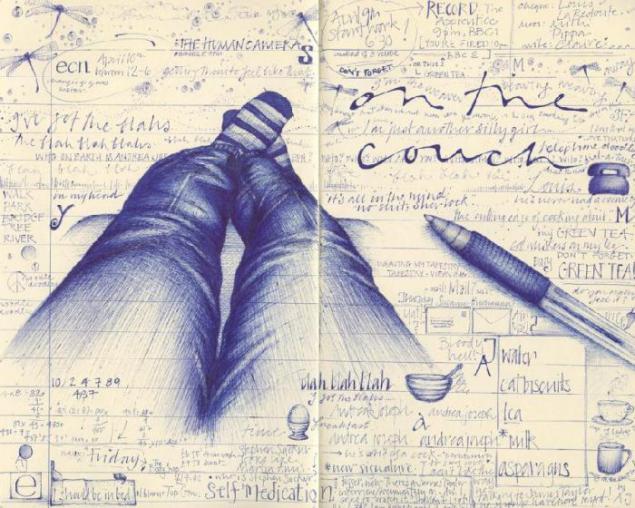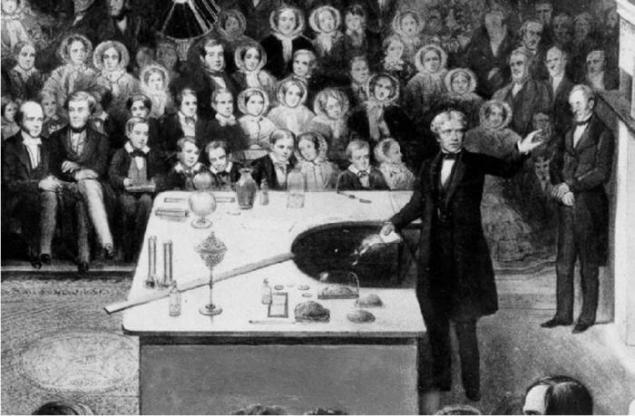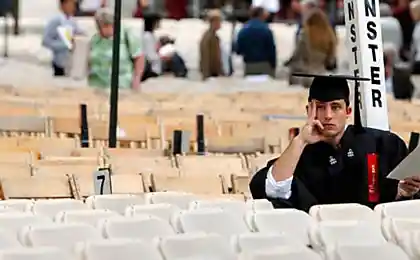774
For those who think that studying at the university is difficult ... (17 photos)
Medieval students were doing on the day the way up to 40 kilometers, going on foot from the university to the university to hear a lecture by a famous professor. Today's high school kids sometimes too lazy to go from one building to another. They do not appreciate the achievements of civilization, and it would be necessary - after the student's life in the XXI century is not an example lighter than its counterpart in the past.

1 Studied long and hard. The duration of training at some faculties (such as theological) reached 15 years. Now, to get a higher education, a young person will need three times less time. Check University at age 32 would have liked, probably only those who went to university for a delay from the army ...

2.Zapisyvat did not have time. It was considered bad form slowly lecture. Rules of the University of Paris in 1355 require professors to speak faster than able to capture on paper the student. Some believed that this approach develops memory of students. Today, many students have time to have fun in class in between dictation. For example, make your own abstract work of art.



3.Sideli straw. That is enjoined another statute (regulation), University of Paris, published a year later, the previous one, "because so humbled pride of the young." However, current students to work with the table legs forced to remove.


4.Prosporivshy treated wine. In addition to attending lectures, students participated in a medieval weekly debates with professors. As a rule, they discussed the controversial place in the studied texts. To express their point of view different from the teachers, it is not forbidden, and even encouraged. However, students are particularly keen on risking your wallet if after the third request Master debater and has not stopped, it was fined. Guilty panelist at the end of it had to put all present two quarts of wine (about two liters).


5.Sgibalis under a pile of books. For each subject needed textbooks, which, unfortunately, are enclosed in a cover heavier. So you can overstrain, chewing granite science. Unlike the modern student is easier with e-book reader. For example, in trehsotgrammovuyu reader Lexand LT-227 can be downloaded not only all the necessary textbooks, but also music, film, photography. 4 GB of internal memory plus an expansion slot up to 16 GB of memory allow to collect Lexand LT-227 literature for all five courses. And the price for such a gadget is quite expensive for students - about 4 thousand rubles.


6.Oschuschali difference. Along with the rapid pace of dictation from teachers was another unwritten rule: do not read from one year to the same lectures. Moreover, even by their own use of abstracts it was considered shameful. Thus, from notebooks to students older friends did not have any sense. We can download the lecture notes from the university site and do not leave the house before the session.


7.Imeli privileged position. A study at the University considered honorable. Moreover, the educational institutions themselves received autonomy from the king, which reaped the fruits of their students. For example, students do not pay taxes and customs duties, and if they happen to commit any offense (up to criminal), the court could only produce Rector


8.Bogatye students bought as a slave status accessories. And then - we hired a large staff of servants, where students were often poorer. After all, it was necessary to somehow stand wealthy student, is a cell phone with diamonds and luxury Cadillac still was not even in the draft.



1 Studied long and hard. The duration of training at some faculties (such as theological) reached 15 years. Now, to get a higher education, a young person will need three times less time. Check University at age 32 would have liked, probably only those who went to university for a delay from the army ...

2.Zapisyvat did not have time. It was considered bad form slowly lecture. Rules of the University of Paris in 1355 require professors to speak faster than able to capture on paper the student. Some believed that this approach develops memory of students. Today, many students have time to have fun in class in between dictation. For example, make your own abstract work of art.



3.Sideli straw. That is enjoined another statute (regulation), University of Paris, published a year later, the previous one, "because so humbled pride of the young." However, current students to work with the table legs forced to remove.


4.Prosporivshy treated wine. In addition to attending lectures, students participated in a medieval weekly debates with professors. As a rule, they discussed the controversial place in the studied texts. To express their point of view different from the teachers, it is not forbidden, and even encouraged. However, students are particularly keen on risking your wallet if after the third request Master debater and has not stopped, it was fined. Guilty panelist at the end of it had to put all present two quarts of wine (about two liters).


5.Sgibalis under a pile of books. For each subject needed textbooks, which, unfortunately, are enclosed in a cover heavier. So you can overstrain, chewing granite science. Unlike the modern student is easier with e-book reader. For example, in trehsotgrammovuyu reader Lexand LT-227 can be downloaded not only all the necessary textbooks, but also music, film, photography. 4 GB of internal memory plus an expansion slot up to 16 GB of memory allow to collect Lexand LT-227 literature for all five courses. And the price for such a gadget is quite expensive for students - about 4 thousand rubles.


6.Oschuschali difference. Along with the rapid pace of dictation from teachers was another unwritten rule: do not read from one year to the same lectures. Moreover, even by their own use of abstracts it was considered shameful. Thus, from notebooks to students older friends did not have any sense. We can download the lecture notes from the university site and do not leave the house before the session.


7.Imeli privileged position. A study at the University considered honorable. Moreover, the educational institutions themselves received autonomy from the king, which reaped the fruits of their students. For example, students do not pay taxes and customs duties, and if they happen to commit any offense (up to criminal), the court could only produce Rector


8.Bogatye students bought as a slave status accessories. And then - we hired a large staff of servants, where students were often poorer. After all, it was necessary to somehow stand wealthy student, is a cell phone with diamonds and luxury Cadillac still was not even in the draft.


























